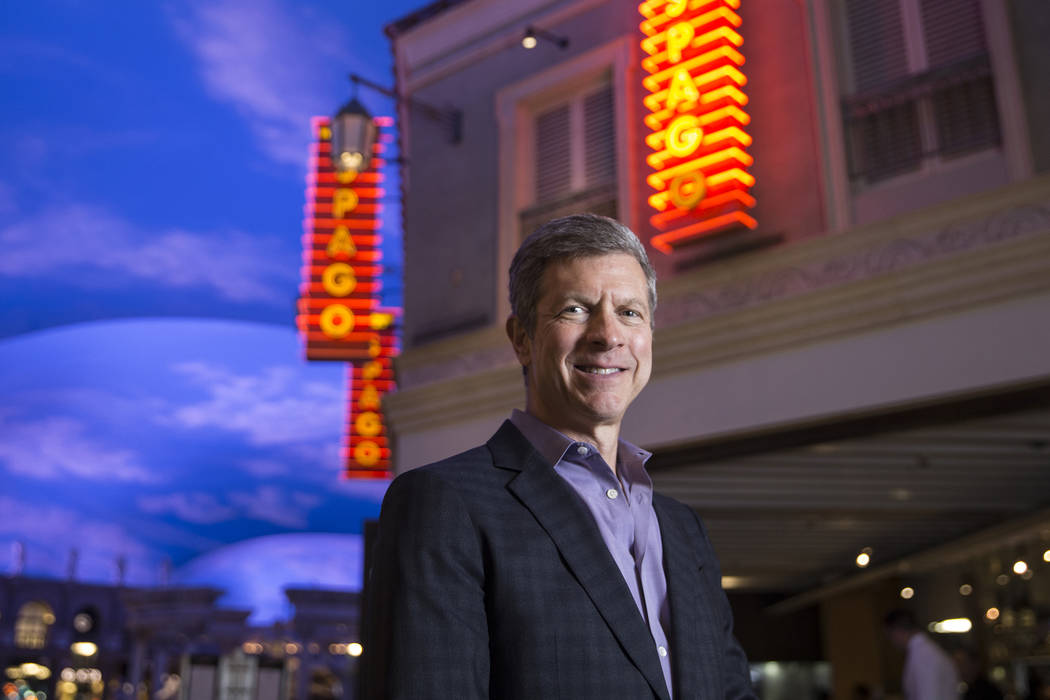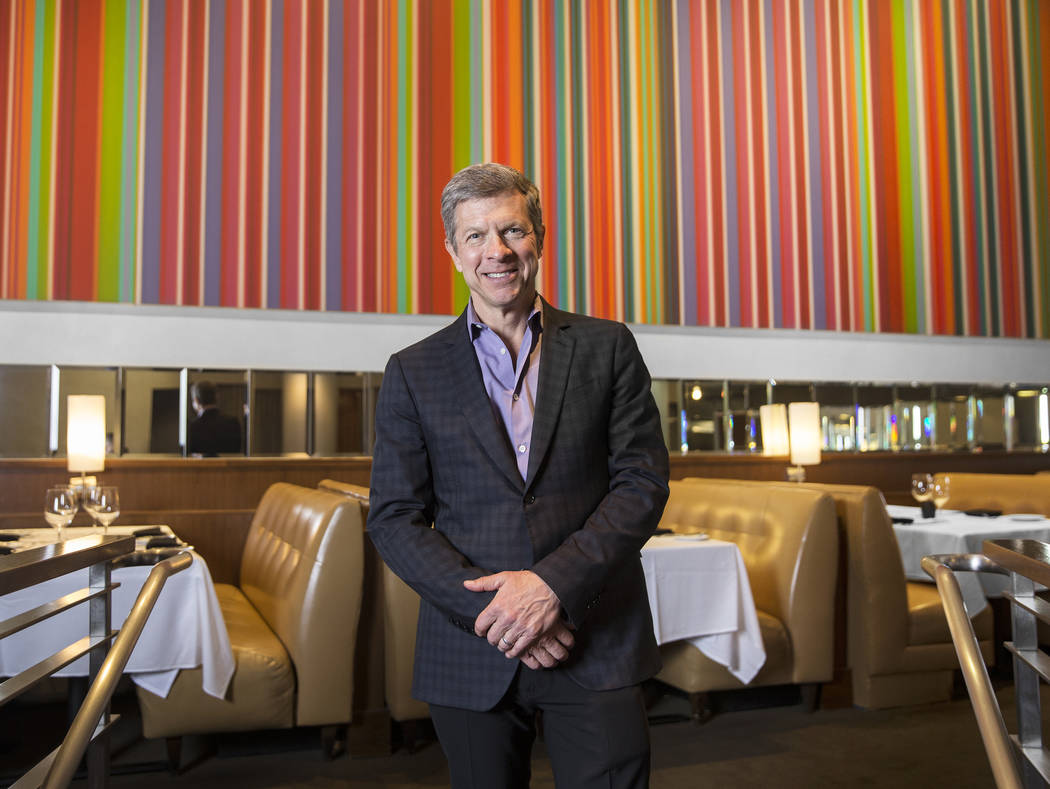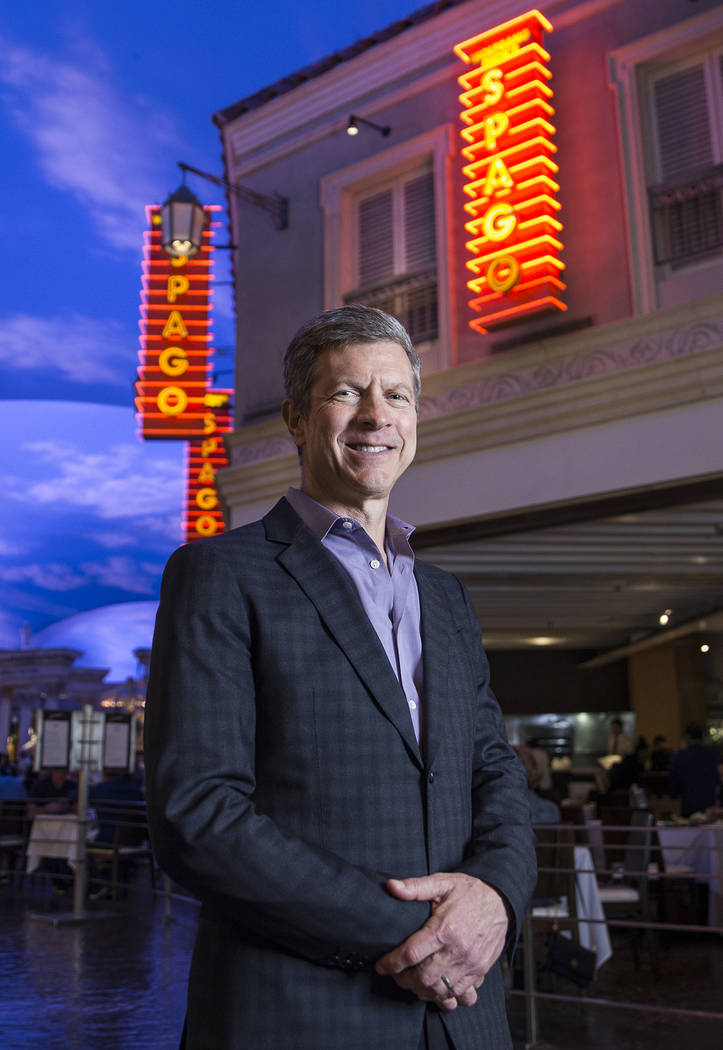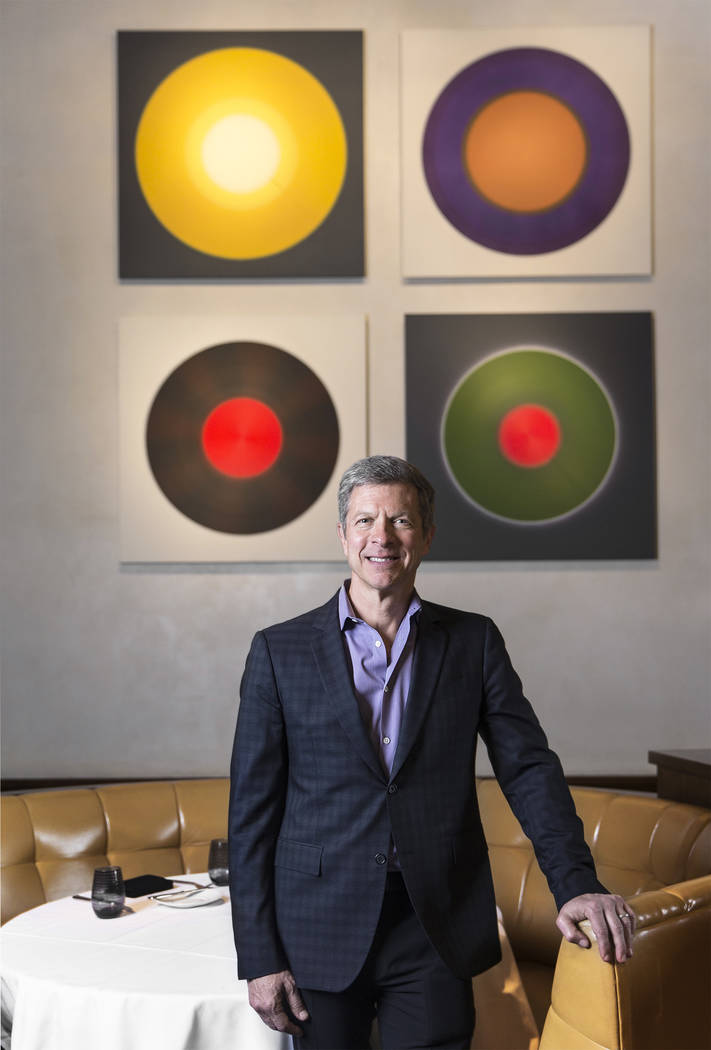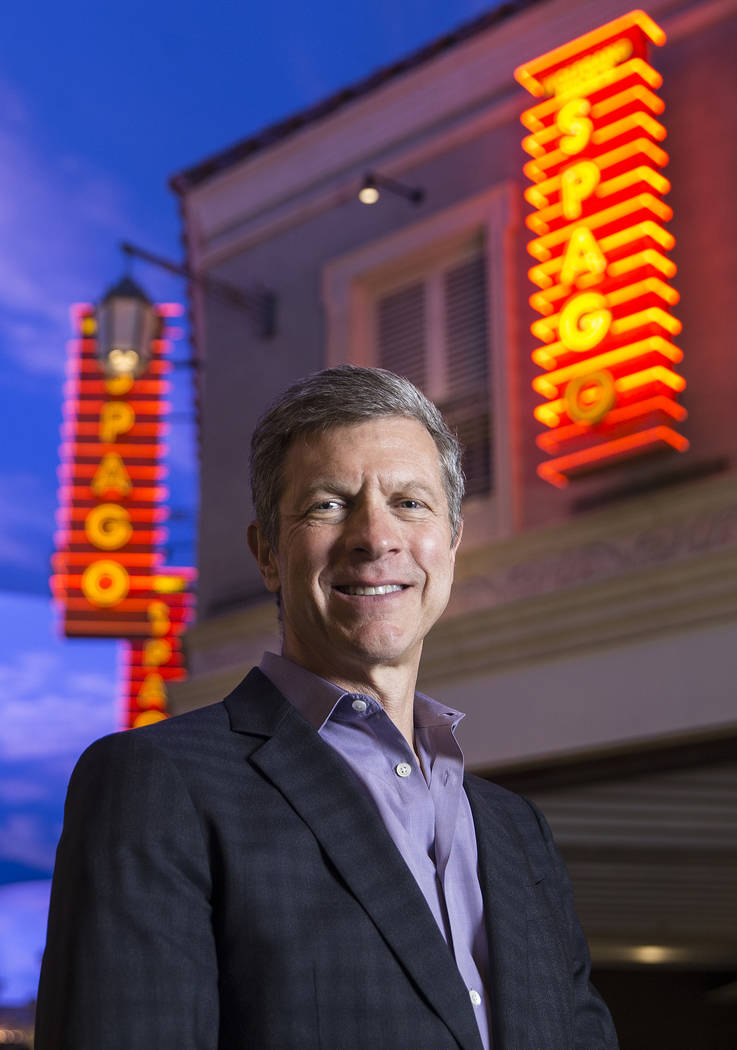Aiding community a major focus for Wolfgang Puck’s Tom Kaplan
Vegas Voices is a weekly series highlighting notable Las Vegans.
Tom Kaplan, senior managing partner of the Wolfgang Puck Fine Dining Group, grew up in Stamford, Connecticut, and graduated from Bowdoin College in 1980 with a bachelor’s degree in art history and visual arts and a major in environmental studies. He moved to Los Angeles the same year to find a job and establish residency before attending graduate school to become an architect. He met Wolfgang Puck on a small design job at Ma Maison; they became friends and still work together 35 years later. “He said he was on his way out (of Ma Maison) and would I consider helping him open the restaurant?” Kaplan said. “I naively said yes. I thought I’d do it for a couple of years. It was very serendipitous.”
R-J: How did the company’s move to Las Vegas come about?
Kaplan: We opened Spago in West Hollywood (in 1982) and the company grew organically from two or three restaurants to the Las Vegas market in 1992. Wolf sent me here, initially temporarily. Wolf’s wife at the time (Barbara Lazaroff) was doing all the design work. He said I could help with the back of the house. Within a year, the general manager was terminated and Wolf put me in that position by default because he knew he could trust me. I thought about business school; it really was on-the-job training. Now I’m involved in construction, working with architects and builders.
You moved to Las Vegas in 1992, the same year Spago opened here. Was that a statement of commitment to the community?
Yes. I would say initially it was 50 percent for the first four or five years, but we were constantly playing catchup and refining. I think Wolf realized that he was in L.A. and that my time would be better served here. Like David (Robins, managing partner, culinary and operations) I was not too happy with that; we thought we would go back to L.A. and San Francisco. By the late ’90s we realized that we weren’t, and we were happy to be here.
What is your role in the philanthropic aspect of the company?
The way I was raised by my family — and very much Wolf was, although we were in two different countries — we always believed in helping people, just naturally. Not because it was good for business but because it was the right thing to do. Wolf was always someone who believed in giving back to the community he was in, which initially was just Los Angeles. He learned the community and what was important to them. We were involved in Meals on Wheels and hospital systems that wanted to learn how to do events; in the ’80s, food and wine events were in their infancy. Today, we get involved in endeavors in each of the cities we’re in, rather than one global endeavor. We also spend time helping other organizations better grow themselves, which is something cash contributions don’t always accomplish.
What sort of things are you involved with in locations other than Las Vegas?
It varies. In L.A., pancreatic research; we lost a member of the catering company to pancreatic cancer. (But primarily) kids, education and food.
How have you seen Las Vegas change since 1992, in terms of philanthropy?
I think we were intrigued very early on, for such a small community, how supportive the community was. We realized very quickly that people were very generous here, with really no strings attached. I just hadn’t seen Las Vegas as being a close-knit community. The growth of the city has a sort of parallel growth in philanthropy. There’s a wonderful appreciation for helping serve the various sectors. One thing we learned early was that it was important to give back to the community; friends said, ‘You have to be sure the majority of the money stays here.’
Is Las Vegas an inherently philanthropic city, compared to other cities with which you are familiar?
Wolf had participated in big events — the Cattle Baron’s Ball in Dallas, Marvin Davis’ benefits in Denver. The (first) Keep Memory Alive event raised money at levels he hadn’t seen. The big, big events became very big. For a while, people didn’t understand how philanthropic Las Vegas was, or is.
What is your main philanthropic focus?
Right now for me it’s a combination of the Brookings Institution and Brookings Mountain West at UNLV — educational and economic development here in the state. Las Vegas has been very good for our businesses, and I really admire the work that the Brookings Mountain West and Brookings Institution have done for the city. The high-level work they do can really step up and be more impactful.
Contact Heidi Knapp Rinella at Hrinella@reviewjournal.com or 702-383-0474. Follow @HKRinella on Twitter.
Newest Las Vegas discovery?
The City National Bank Arena or the T-Mobile Arena. Like most people, I'm incredibly excited about hockey here in Las Vegas. That goes for me, my wife and our 5½-year-old son.
Place you always take visitors?
I love taking visitors to Mount Charleston.
Favorite vacation destination?
Sun Valley, Idaho. I love the outdoors, camping, backpacking. It clears the head, resets the batteries.
Piece of art that truly moved you?
Edvard Munch's "Scream" — and that has nothing to do with our politics or world situation today.
Food you always keep in your refrigerator?
Frozen pizza.



